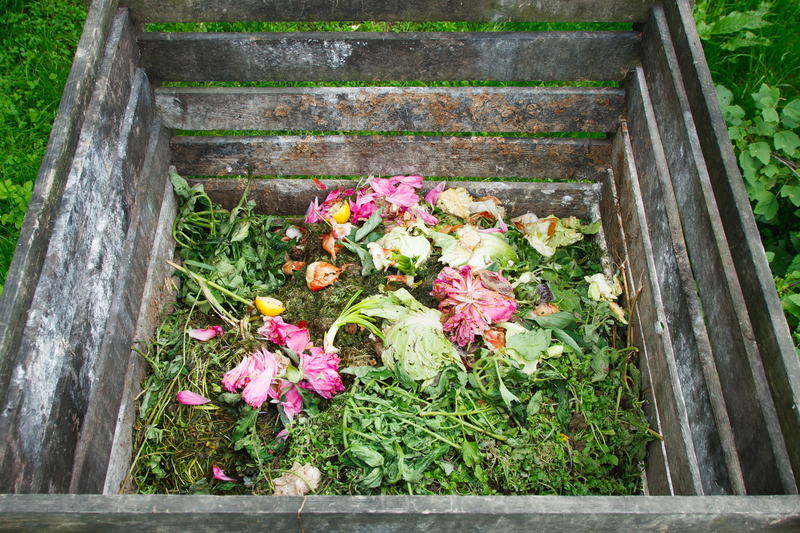Finding Local Recycling Centers for Pots and Pans: The Complete Guide
Disposing of old cookware like pots and pans in an eco-friendly manner is essential for sustainable living. Many people are unaware that their damaged or worn-out pots and pans can often be recycled rather than ending up in landfills. This detailed guide will help you navigate the process of finding local recycling centers for pots and pans, the nuances of cookware recycling, and tips for eco-conscious disposal. Read on to become an expert at managing your kitchen castoffs responsibly!
Why Recycle Pots and Pans?
Before exploring how to find a cookware recycling center near you, it's helpful to understand why recycling old pots and pans is important. Here are a few compelling reasons:
- Conserving Resources: Recycling metals reduces the demand for raw materials, conserving natural resources such as ores and minerals.
- Reducing Landfill Waste: Cookware is bulky and non-biodegradable. Keeping it out of landfills minimizes environmental impact.
- Energy Savings: Processing recycled metal typically requires less energy than extracting and refining new material.
- Supporting a Circular Economy: Your actions help promote reusing valuable materials and minimizing waste.
Proper cookware recycling ensures that materials like stainless steel, aluminum, and copper are reintroduced into manufacturing, minimizing waste and environmental damage.

What Types of Pots and Pans Can Be Recycled?
Not all cookware is recyclable at every facility, so it is essential to understand the different materials involved. Here's a breakdown of commonly recycled pots and pans:
- Stainless Steel Pots and Pans
- Aluminum Cookware (including non-stick if coatings are removed)
- Copper Bottomed Pans
- Cast Iron Skillets
However, not all facilities accept the following:
- Non-stick pans with intact coatings
- Ceramic or glass cookware
- Cookware with plastic handles, unless separated
Always check with your local recycling center for their specific guidelines before drop-off.
How to Prepare Pots and Pans for Recycling
To ensure your cookware is ready for recycling, follow these preparation tips:
- Clean Thoroughly: Remove all food residue to avoid contamination.
- Remove Non-Metal Parts: Detach plastic, silicone, or rubber handles (if possible).
- Separate Materials: If a pan has a glass lid or ceramic insert, remove and recycle these separately if allowed.
- Check for Non-Stick Coatings: Some facilities only accept non-coated metals.
By preparing your cookware properly, you increase the likelihood that it will be successfully recycled.
How to Find Local Recycling Centers for Pots and Pans
1. Online Recycling Directories
The fastest way to locate a local recycling center that accepts pots and pans is to use online directories. Here are some trusted resources:
- Earth911 Recycling Locator - Enter your ZIP code and the item for instant results.
- Recycle Finder - An easy-to-use database for finding specialty recyclers.
- Local city or county waste management websites often have recycling center maps and accepted materials lists.
2. Contacting Scrap Metal Yards
Most pots and pans are made of recyclable metals like aluminum or steel. Scrap metal yards are often the best place to bring these items. Call ahead to confirm if:
- Your item's metal type is accepted
- Non-stick coatings or other materials need removal
- There are specific drop-off hours
3. Local Curbside Recycling Programs
Check with your municipality or waste management provider to see if they accept cookware in curbside recycling bins. Some programs allow small metal items, while others do not due to size and contamination concerns.
4. Retail Take-Back or Donation Programs
Some retailers, like Sur La Table or certain home improvement stores, occasionally offer take-back or recycling events for old cookware. In addition, organizations such as Goodwill, Habitat for Humanity ReStores, and local shelters accept gently used pots and pans for donation. Reuse is an excellent alternative to recycling!
5. Municipal Drop-Off Centers
Your city or county may have a centralized location for metal recycling drop-offs. These are often equipped to accept larger household metal items including pots and pans. Check your city's official environmental services website for details.
What to Do if You Can't Find a Local Cookware Recycling Center
If nearby facilities don't accept your cookware, don't give up! There are creative alternatives, including:
- Upcycling Projects: Turn old pans into planters, bird baths, or wall art.
- Community Swap Events: Offer cookware you no longer need to others for reuse.
- Donation: Many local charities or thrift shops will accept usable pots and pans, extending their lifecycle.
- Mail-Back Programs: Some companies may offer shipping labels to send old cookware for proper recycling (check brands like GreenPan or Calphalon).
Reuse and upcycling are both sustainable solutions that keep resources out of the waste stream.
Frequently Asked Questions About Pots and Pans Recycling
Can non-stick pans be recycled?
Most recycling centers will not accept non-stick cookware if the Teflon or similar coating is still present. However, if you remove the coating, or the facility is equipped for separating materials, recycling may be possible. Always check first.
Is it okay to throw pots and pans in the trash?
It's not recommended. Pots and pans are long-lasting materials that take up significant landfill space and do not decompose. Recycling or reuse are far superior options.
Do I need to remove handles and lids before recycling?
Yes, if possible. Remove any non-metal parts like handles, knobs, or plastic/rubber seals to prevent contamination. Metal lids can usually be recycled with the pan if they are the same type of metal.
What if my pans are rusty or damaged?
Don't worry! Most metal recyclers accept rusty, damaged, or warped cookware. Extensive damage does not typically impact the metal's recyclability.
Eco-Friendly Tips When Upgrading Cookware
If you're parting ways with your old pots and pans, consider these eco-friendly tips for your next cookware purchase:
- Choose Recyclable Materials: Stainless steel, cast iron, copper, and uncoated aluminum are easy to recycle.
- Consider Durability: Quality cookware lasts longer and reduces waste.
- Repair Before Replacing: Handles and lids are often simple to fix.
- Support Brands with Take-Back Programs: Some innovative brands offer recycling initiatives for their old products.
Incorporating sustainability into your kitchen starts with mindful shopping and continues with responsible disposal practices.

Summary: Finding the Right Way to Recycle Your Pots and Pans Locally
Recycling old cookware helps reduce environmental impact, conserves valuable resources, and supports a greener world. By taking a few extra steps--like preparing your pots and pans for recycling and researching local centers--you're making a big difference. Remember:
- Check local rules: Each area has different recycling rules for pots and pans.
- Remove non-metal parts: Ensure your pots and pans are pure metal whenever possible.
- Consider reuse: Donation, upcycling, and swap events give kitchen items a second life.
Ready to do your part? Start by searching for a nearby recycling center and give your old pots and pans a sustainable send-off!
Additional Resources
Want more green living tips? Subscribe to our newsletter for updates on recycling, eco-friendly kitchen swaps, and sustainable lifestyle guides!